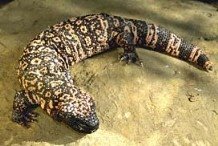Today is August 6th, the 65th anniversary of the day the crew of the Enola Gay dropped the never-tested "Little Boy" atomic bomb on the city of Hiroshima. That was the day the war between Japan and the United States — which began with the attack on Pearl Harbor on December 7th, 1941 — finally began to end.
Here is something I heard from one of the atomic bomb program's participants in the Pacific.
Leon Smith, one of the 509th Composite Bomb Group’s three weaponeers on Tinian Island, was asked by a Japanese documentary film crew (including three individuals from Hiroshima) a number of years later how he felt when the atomic bomb was dropped on Hiroshima. (By a flip of the coin, the other two weaponeers flew on the missions to Hiroshima and Nagasaki. Smith would probably have flown on the atomic bomb mission to Tokyo had that mission been necessary, but flew on the post-war test at Bikini Atoll instead.) He recounted his response as follows:See Nuclear History for information on the atomic bombs and their use in 1945 to end World War II. Separate parts of that article deal with Hiroshima, Trinity, and Nagasaki.Today is the anniversary of the Enola Gay’s flight to Hiroshima, the anniversary of the day Leon Smith’s relief began.
I pointed out there had been a long war — intensive battles starting in the South Pacific, moving ever northward toward Japan. I talked about the 30,000 Japanese soldiers, 20,000 civilians, lost on Saipan. On Iwo Jima, which was roughly halfway to Japan and a fighter base, 60,000 Marines went ashore, and suffered the highest casualty rate they’d ever suffered in any Marine operation. The Japanese had 21,000 defenders. 20,000 died. The battle for Okinawa had just been completed at the end of June. There over 100,000 Japanese soldiers died. 125-150,000 civilians.General Marshall believed that defending Japan were 2.3 million soldiers, 4 million navy men, and 28 million armed civilian militia. I said the invasion was scheduled for November of ’45. I thought the casualties would have been simply unreal — beyond comprehension.
I said, “How did I feel when the bomb was dropped? I felt a sense of relief.” I was confident that the war would soon be over. That I could go back and see my wife whom I’d seen very little since our marriage in 1941. The U.S. and its allies could go back to their homes and their families. And the Japanese could go back to their families. Yes, I felt a sense of relief.
UPDATE: Here is a link to a short 1998 interview with Paul Tibbets, then a colonel and the pilot who flew the Enola Gay over Hirishima on August 6, 1945.


No comments:
Post a Comment